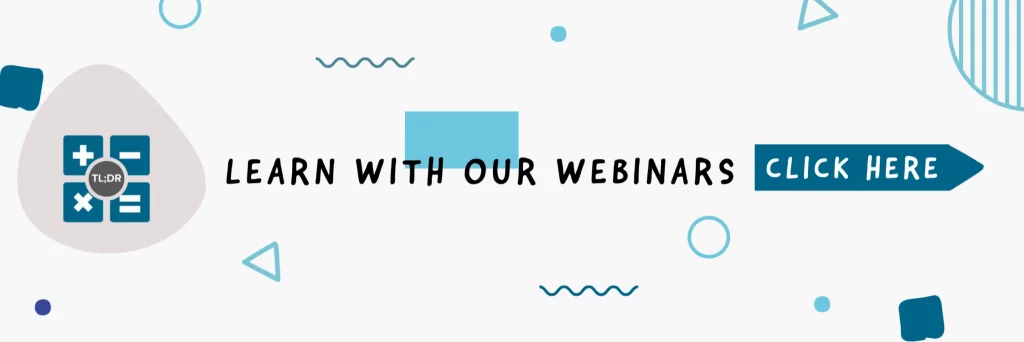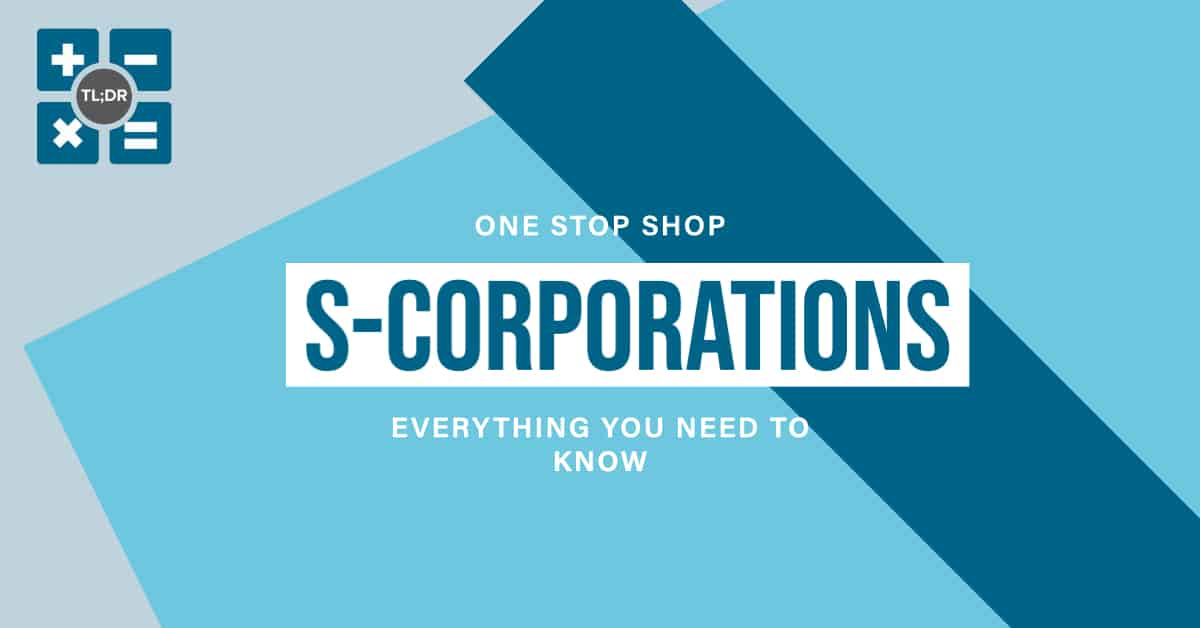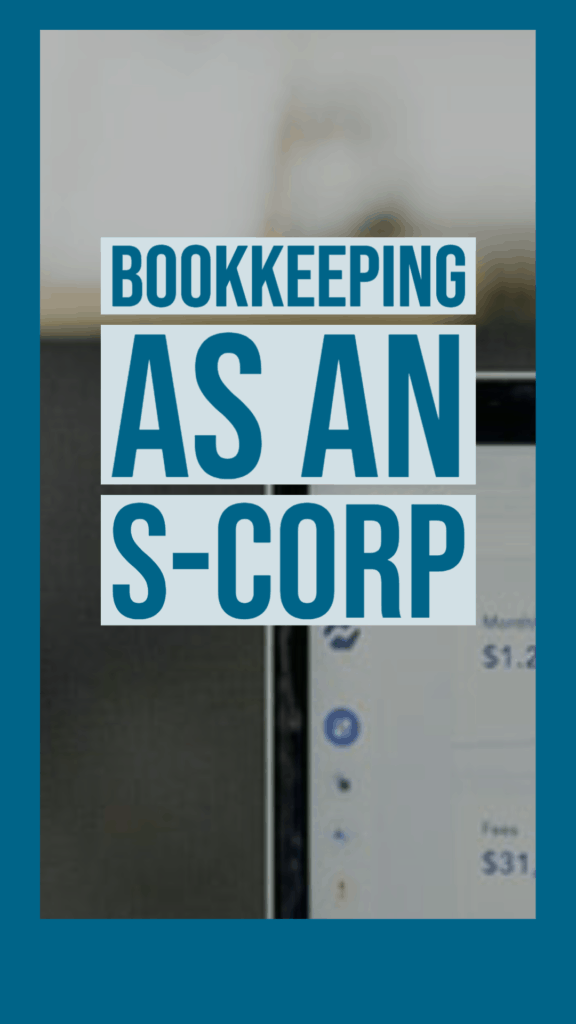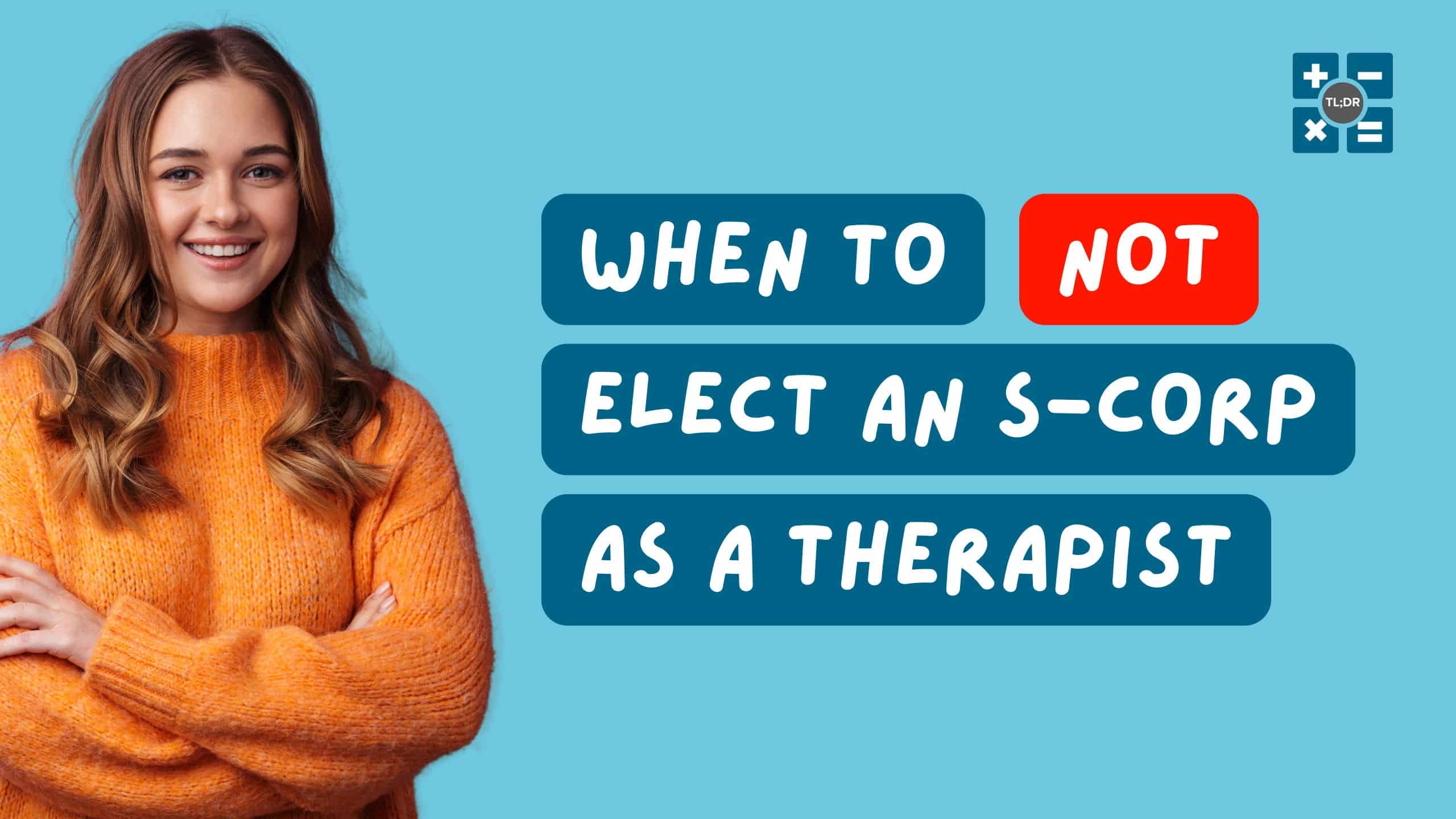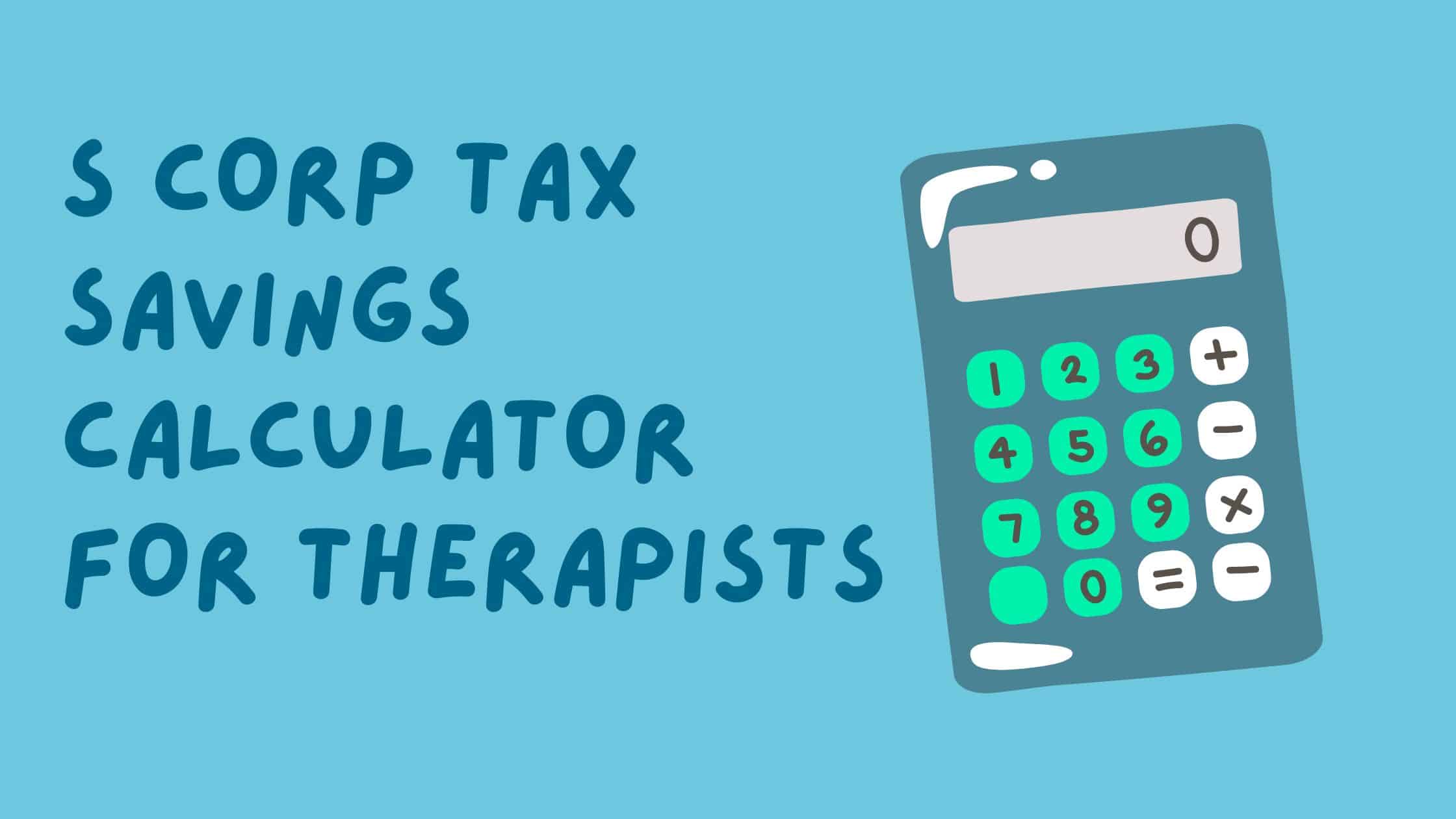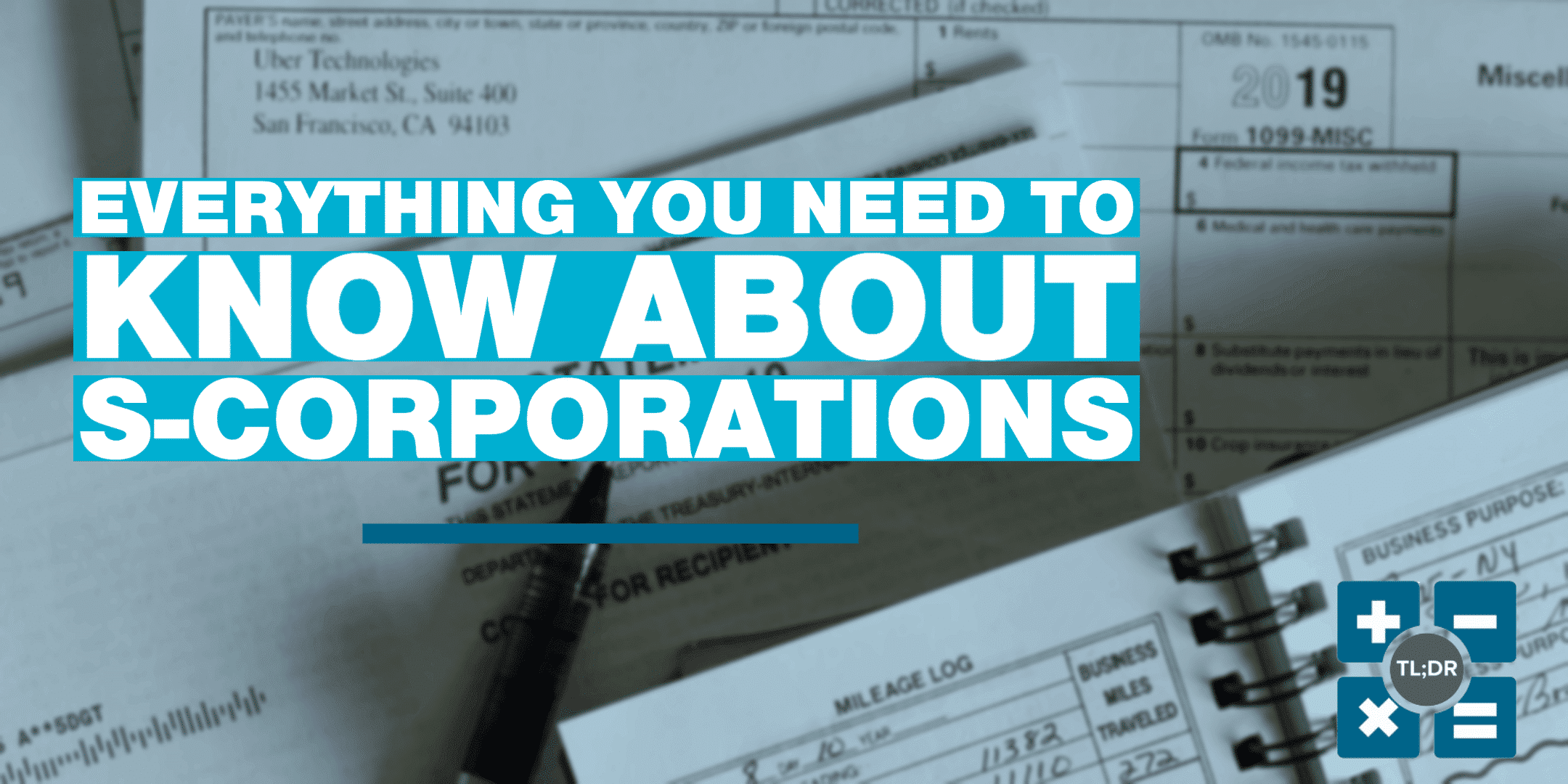If you own an S-Corporation, or you’re thinking of becoming one, we’ve put together a special “Hub” page, a launchpad where you can take a breather and plan your next foray into the more specialized technical articles. In gaming terms, it’s like the town you visit to restock and replenish before you dive into the next dungeon. We all know that it’s unwise to just dive straight from dungeon to dungeon without a rest!
S-Corporation Basics
TL;DR: The decision on whether or not to become an S-Corporation basically comes down to determining whether the tax savings are worth the extra complexities of running payroll and dealing with the legally-required corporate formalities.
Let’s get something very important out of the way, right away: S-Corporation is a “yes or no” choice for a corporation to make (the “S-Corporation election”) that only changes the way your corporation is taxed. You can be an LLC that’s an S-Corporation, or you can be a regular (“C”) Corporation that later makes the S-Corporation election.
The point is, a business must first incorporate (become a corporation) before making the S election.
Let’s take a quick look at the pros and cons of S-Corporations:
Pros: The biggest “pro” is the sheer amount of money you can save on taxes. This is not to be understated! Other pros include potential access to better health insurance options and limited liability (which is a benefit for any corporation).
Cons: As part of becoming an employee of your own business, you must determine a “reasonable” salary for yourself (see Draws vs Salary below). This salary is subject to IRS scrutiny. Paying yourself means you have to set up a payroll system (if you haven’t already), which can be a headache. Other cons include all the legal formalities involved with owning a corporation, and being expected to pay tax on your corporation’s profits even if you don’t have much cash.
Will My Bookkeeping Change as an S-Corporation?
TL;DR: The answer is probably: “Yes, significantly.”
- You are required to run payroll if you haven’t before, because you now have at least one employee (yourself). Payroll is messy, so you should definitely get a payroll software package.
- You may have to formalize your books. Among other things, you must:
- Separately state returns & allowances
- Show Cost of Goods Sold (COGS)
- Keep an accurate Balance Sheet
- It would behoove you to review and reconcile your books at least once a month, and to buy bookkeeping software (like QuickBooks) if you haven’t already.
What Is a Flow-Through Entity?
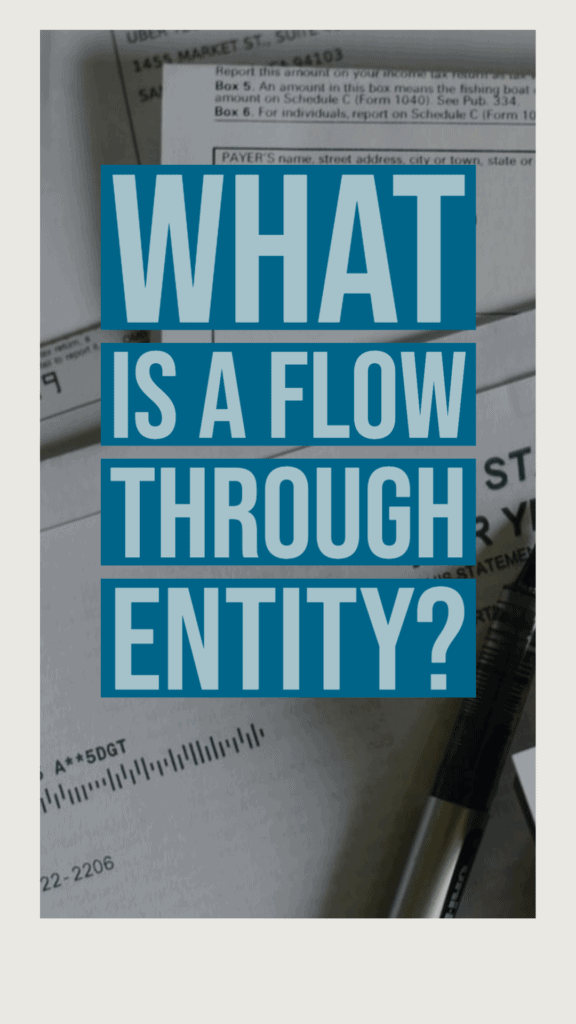
TL;DR: A flow-through entity is a legal entity (“corporate person”) that files an income tax return but does not pay income tax.
- Your S-Corporation does not pay taxes, but you have to pay taxes on your S-Corporation’s profits.
- This is an interesting conundrum, because you pay tax on profits whether or not you take any distributions.
- Many S-Corp owners take a special distribution every quarter just to pay estimated income tax, even if they don’t take any distributions otherwise.
- Even if you feel like you already understand all this, the article has a sweet pirate analogy so you should click on the link anyway 🙂
How Do I Pay Estimated Taxes?
TL;DR: Making an S-Corp election means you probably have to start paying estimated taxes.
- Employees generally don’t have to file 1040-ES estimated tax returns because the regular payroll withholding system already does this for them automatically.
- This changes for S-Corp owners. You must now file a 1040-ES four times a year, but not once a quarter because the filings are staggered in a strange way:
- As you know, your 1040 is due 4/15. Your 1040-ES filings are due 6/15, 9/15, and 1/15 of the next year. Mark these dates on your calendar!
- Another important thing about estimated taxes is that the IRS penalizes you if you don’t pay enough estimated taxes!
- You must pay at least 90% of your current tax owing, or at least 100% of your previous year’s tax owed, to avoid penalties. You only know one of these numbers, but we can help you estimate the other.
Draws vs. Salary
TL;DR: Everybody’s gotta make a living. As an S-Corp owner, you take a regular salary like an employee, but you also have the option to take distributions as an owner.
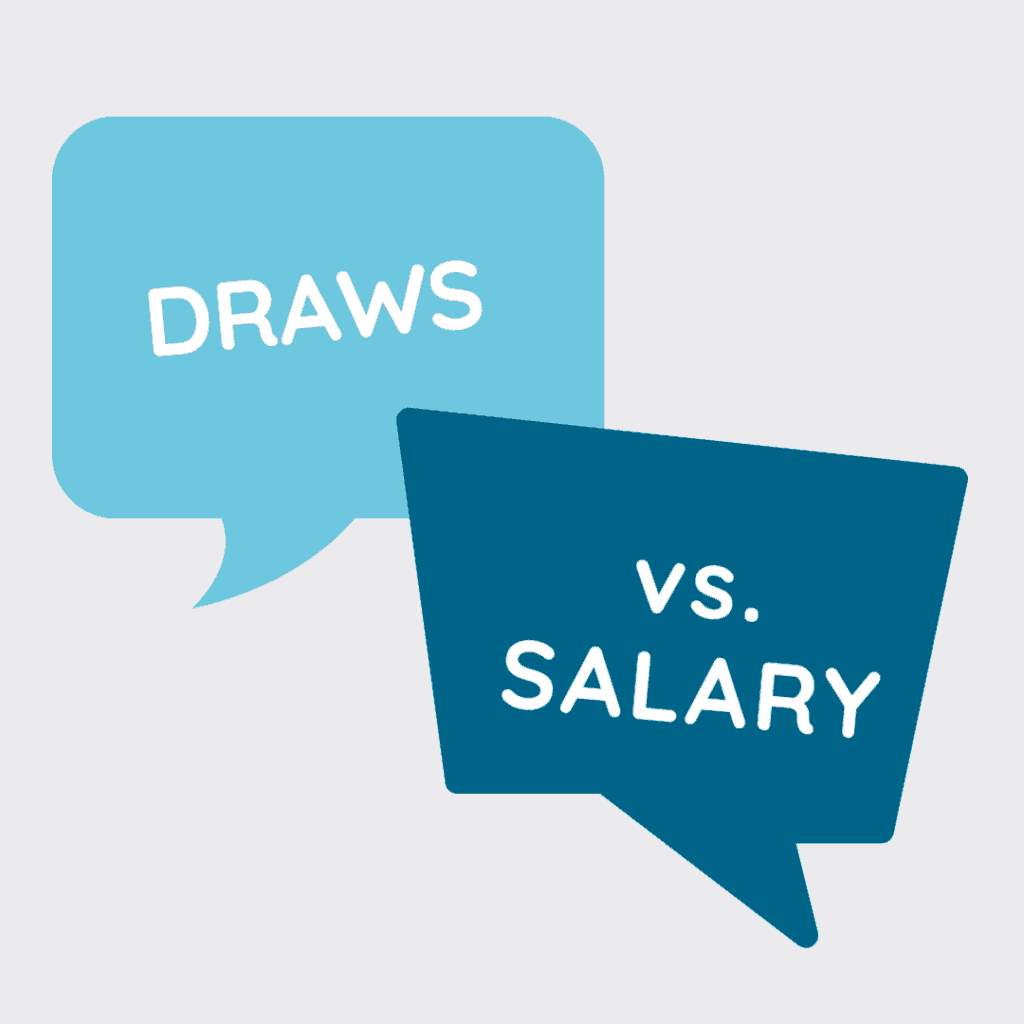
If you’re wondering whether to call your income a salary or a distribution, take a look:
- Salary payments are regular, frequent, do not change your ownership interest in the company, are subject to payroll tax, and are subject to IRS scrutiny as far as the amount (“reasonable salary”).
- Draws are discretionary, usually infrequent, and generally occur in response to a need of yours (to pay for taxes, buy a house, have a child, etc.). Draws do not trigger payroll taxes or IRS scrutiny, but they do reduce your ownership interest (“basis”) in your business.
SEP Retirement Plans Under an S-Corp
TL;DR: Because you have an S-Corp, you are, by definition, an employee. As an employer, you have access to the SEP-IRA option. The SEP-IRA is a simple and flexible retirement plan, at least compared to a 401(k). If you have employees, make sure to do some math to see how much a proportional contribution (to everyone) will cost you!

- The SEP-IRA is a traditional IRA, meaning that contributions are pre-tax and come out of your paycheck instead of going to your personal checking account.
- Because of this, SEP contributions are tax deductible (or more technically, tax-deferred until you’re 70 ½).
- SEP-IRAs have a high maximum contribution (25% of salary) which can especially benefit you if you’re the only employee. If you’re not the only employee, keep in mind that you must make proportional contributions for all employees (e.g. 15% of annual payroll for everyone).
- SEP-IRAs are discretionary. If you’re having a bad year, you don’t have to contribute any money to anyone’s plan. This lines up with the proportionality rule mentioned above — 0% for everybody is proportional.
- There are some limitations to the SEP-IRA that might change your mind, but they mostly only limit you if you have other employees besides yourself:
- Aside from the proportional requirement above, you generally have to include everyone in your SEP-IRA, even part-time and seasonal workers.
- There’s no way to make the contributions vest later, so you don’t get that option to incentivize employee retention.
- You can’t take loans from a SEP-IRA like you can from a 401(k).

Preparing for Your S-Corp Taxes at End-of-Year
TL;DR: You don’t get a choice on whether or not to pay the IRS, and that sucks. But there are some ways to cut back how much you’ll owe come tax time.
- Going on a year-end shopping spree might sound like a thrill, but understand that you’re still losing your company money if you’re buying unnecessary items, even if it saves you a bit on taxes.
- Put some money into retirement. The government actively encourages this by giving you a break on your taxes. Just make sure that the money leaves your account by Dec. 31st.
- If you have assets that you don’t or can’t use, or receivables that you probably won’t ever collect, consider writing them off. This will increase your expenses and give you a tax break.
- Accelerating your depreciation is an option to save you money now, but it will reduce your tax savings in future years.
3 Factors to Consider BEFORE You Become an S-Corporation
The main reason to make the S-Corp election is because it can save you sizable tax dollars. There are some other benefits as well, along with some drawbacks. but it might help to look at what aspects of a business make it a good candidate for the S election.
You might want to become an S-Corporation if the answers to these questions is “Yes”:
- Is your business income steady?
- Can you afford to pay yourself a regular salary?
- Are you able to reliably collect cash from your customers? (Note that both reliable income and reliable cash collection are important.)
- Are your books maintained on a monthly (or more frequent) basis?
- Are you willing to put up with added legal and payroll complexity in return for tax savings?
If you answered “Yes” to all of the above questions, then give us a call and we can see if the S election is right for you. If there’s one or more “No’s,” then it’s time for some serious business soul-searching before you make this major legal decision, but you can always check with us for advice! You can schedule your virtual appointment here.
